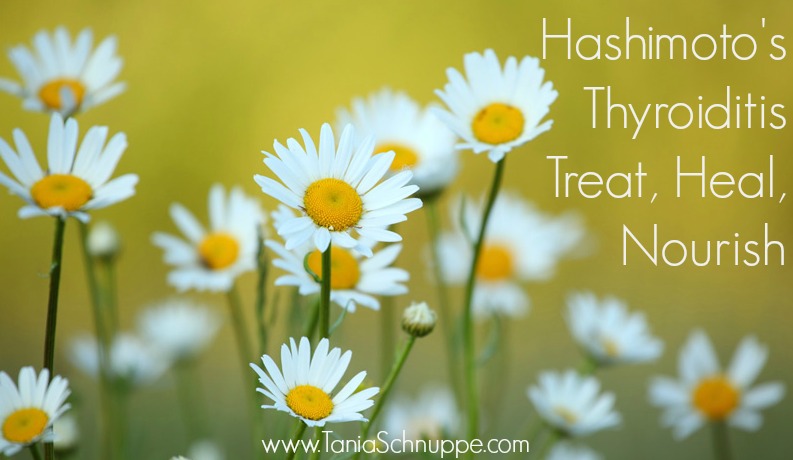Hashimoto’s disease (also known as autoimmune or chronic lymphocytic thyroiditis) is a condition where the immune system attacks the thyroid gland. The primary role of the thyroid is to produce hormones to regulate a variety of functions throughout the body. Hashimoto’s is an inflammatory disease that can lead to underactive thyroid, known as hypothyroidism. In this condition, the thyroid is unable to produce adequate hormones. Since Hashimoto’s is an autoimmune disease, the specific cause is unknown.
Hashimoto’s diseases is the getting very common and is seven times more common in women than in men.
SYMPTOMS
- Fatigue and drowsiness
- Weight gain
- Constipation
- Feeling cold all the time
- Hair loss
- Dry, itchy skin and dry, brittle hair and nails
- Forgetfulness
- Sore muscles
- Increased sensitivity to medications
- Heavy menstrual flow and increased susceptiblity of miscarriages
- Pufy face
CAUSES
At the core, Hashimoto’s is caused by a malfunction of the immune system; however, the factors for that malfunction are unknown. It is thought that a virus or bacterium might trigger symptoms. Other factors in the development of this disorder include genetics, heredity, sex and age.
FOODS TO EAT
Sea vegetables: Contain iodine, which is critical for the thyroid to function properly.
Omega-3 fats: Fatty acids from grass-fed beef, wild-caught salmon, and chia and flaxseeds can help to reduce inflammation.
Foods high in tyrosine: Thyroid dysfunction may cause a deficiency in this amino acid, which can be found in pumpkin seeds, almonds and fish.
Coconut oil: Provides medium-chain fatty acids in the form of caprylic acid, lauric acid and capric acid that support a healthy metabolism, increase energy and fight fatigue.
Sprouted seeds: Flax, hemp and chia seeds provide ALA, a type of omega-3 fat that’s critical for proper hormonal balance and thyroid function.
FOODS TO AVOID
Goitrogens: Certain raw vegetables called goitrogens (kale, broccoli cauliflower, cabbage and Brussels sprouts) may decrease thyroid function. However, these are not harmful if they are cooked.
Tap water: Can be high in chlorine and fluoride, which decrease the absorption of iodine.
Sugar and refined carbohydrates: Since thyroid problems may result in weight gain, it is critical to reduce the amount of refined carbohydrates that stimulate appetite and may lead to an overconsumption of calories.
Conventional dairy: Dairy can be especially problematic for the thyroid, triggering reactions that raise inflammatory responses. Avoid conventional cow milk, cheese, sour cream and other non-fermented dairy products that are not organic and have been pasteurized.
Gluten: Many people with thyroid issues are also sensitive to gluten. Undiagnosed sensitives to gluten can further raise inflammation, create nutrient deficiencies and worsen hormonal problems.
REMEDIES – HASHIMOTO’S THYROIDITIS
1 Selenium (200 mpg, daily) – helps with the production of free T3, a thyroid hormone
2 Omega-3s or fish oil (3,000 mg, fish oil daily)
3. L-Tyrosine (500mg, two times daily) – Helps replace tyrosine, which may be lacking in people with thyroid problems
4 Ashwagandha (as directed on label) – Helps improve stress and thyroid function.
5. Multi-Vitamin (as directed by the) Provides vitamins and mineral necessary for thyroid function.
ESSENTIAL OILS
Helpful oils include: Chamomile, Citrus, Frankincense, Geranium, Lavender, Lemongrass and Myrrh
To use: To improve thyroid function and heal symptoms of autoimmune disease:
- Combine 3 drops of frankincense with 5 parts lemongrass and 5 parts geranium. Rub these directly on the thyroid, which is located at the front lower part of your neck. You can also try putting 2 drops of frankincense oil on the roof of your mouth, twice daily.
- To combat muscle or joint pain, try a soothing bath using geranium, myrrh and lemongrass.
- To improve your mood and reduce anxiety or irritability, use chamomile, frankincense and lavender, either di used in your home or added to a bath.

